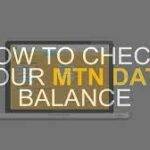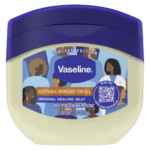Checking out how to sell a car in NC is a great decision. Not only because of the money you will make, but you don’t want to violate the provisions of the law guiding car sales.
You can sell your car online and offline. In fact, it’s easier now to sell online because you will quickly attract the attention of potential buyers.
However, if you are more comfortable with the offline approach, go ahead. But you can reduce your waiting period if you leverage both ways. That is, promote it offline and also display it on online platforms.
2 Main Ways to Sell a Car in NC
- Sell Yourself
- Go through a dealer
Simple and self-explanatory. You can complete the sale of your vehicle yourself or sell it to a dealer who would resell it.
As a suggestion, it is pretty recommended you find every means to sell it yourself, and the reason is that you will make more money.
But be aware that this is not an instruction as you have the sole right to do what’s best for you.
What You Need to Sell a Car Privately in North Carolina
You need the following to sell your car in NC:
1. Reading from the Odometer – to know how many miles are on the car.
2. Proof of passing emissions inspection – this is only needed if you’re in one of the 22 counties where it is required.
3. Proof of passing annual safety inspection – this is very important, and you want to ensure your vehicle passes the inspection before you push it out for sale.
4. Remove your license plates and reserve them for another car you acquire. If you don’t need them again, return them to the Department of Motor Vehicle (DMV).
5. Odometer Disclosure Statement – this is the Form MVR-180
6. Damage Disclosure Statement – Form MVR-181
7. The title – this is evidence that the car truly belongs to you. Filling it has to be in front of the notary public.


How to Sell a Car in NC
First off, selling a car in North Carolina is not a daunting task, but you need to be aware of the rules of car selling. The North Carolina Department of Motor Vehicle (DMV) has a set of rules you must abide by if you want to be legal about your process.
So, if you want to sell a car in North Carolina, simply follow the simple steps below:
Step 1: Get Your Documents Ready
Before publicizing your interest in selling your car, ensure you have all the documents ready.
That is, make sure you have the title ready. If you don’t have the title handy, request a duplicate copy at the DMV.
And if the DMV can’t also produce the duplicate, just request they remove the indemnity bond.
Alongside the title, ensure you have the odometer and damage disclosure statements.
Step 2: Prepare the Bill of Sale
First off, find out how much your car is worth. After that, go ahead and prepare your bill of sale.
Step 3: Prepare Your Car
Yes, prepare your car for the market. People are usually fascinated by what looks appealing, and you want to ensure your car fulfills the requirements.
So, ensure you fix what’s not working correctly or a dented area. This will require some little investment, but it’s worth it.
Step 4: Advertise Your Car
This is the stage where people need to know you have something up for sale.
As mentioned earlier, you can reach out to your target market through online or offline marketing channels.
That is, you can run social media ads, list on car buying and selling websites, or create a one-page website. Also, you can have flyers around, for example, on college bulletin boards or in local communities.
Step 5: Fix the Additional Paperwork
Once you strike a deal with your buyer, fill the back of the title with the required details. Simply fill out the buyer’s name, address, and date the transaction was affected.
In addition, fill out the “disclosure of defects” section while you include the odometer reading.
As mentioned earlier, the form must be signed in the notary public’s presence. Also, the bill of sale provides proof of the amount you sold the car.
Step 6: Turn the Car Over
But wait, before you do that, ensure you remove the tags on the car. Note that you can remove the tags for use on another car with the consent of the DVM. Also, you can take the tags to a license removal location. Make sure you don’t cancel your liability insurance until you’ve done this.
Do you need a notary to sell a car in NC?
Selling a car in North Carolina requires you to have your signature notarized to be valid in North Carolina. This is quite important in the case of selling a vehicle in NC.
Not having a notarized certification connotes you applying for a duplicate title and beginning the process over again.
How to Sell a Car in NC: Other Precautions
1. Be careful when filling the title or other state-issued documents. Any mistakes or scratch outs could prompt the need to fill in additional documents. You don’t want to go through the stress, do you? So, be really careful.
2. In addition, use black or blue ink in the process of filling the title.
3. Make sure you don’t sign in the “Dealer Reassignment” section. That is meant for authorized car dealers.
4. As a car seller, sign and print your name.
5. Keep the title out of the reach of other people. If another person gets hold of it, they can sign the ownership of your car to themselves or another person they want. So, only make it available when you are ready to release the car to the new owner.
Conclusion
It’s that simple! Now you know how to sell your car in NC. Simply ensure you prepare your documents mentioned, follow the steps outlined and take cognizance of the precautions.













